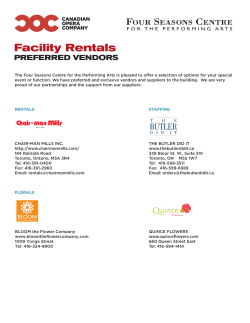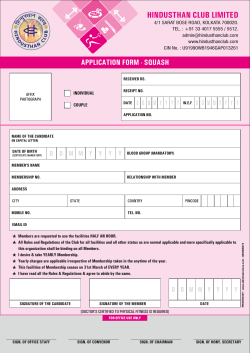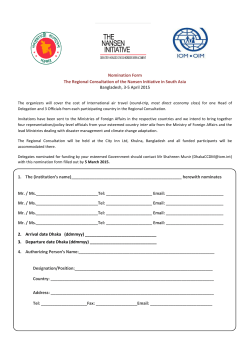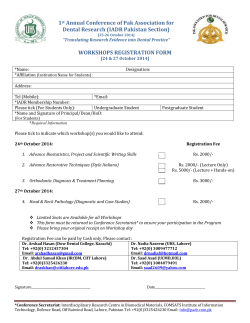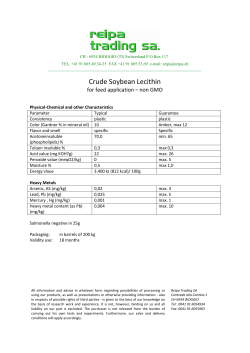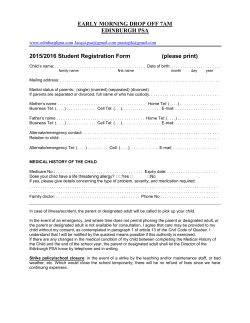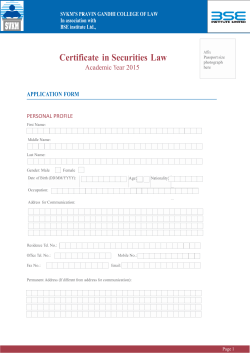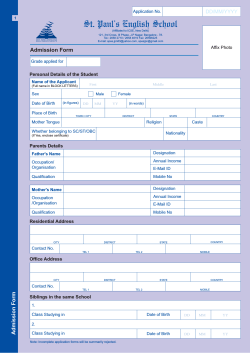
Feeling on the edge? Helping you get through it - Pmha
6/8/2015 Feeling on the edge? Improving the lives of people with mental illness * We are aware that Emergency Department staff need both skills in suicide prevention/mitigation and a knowledge of which specialist services to access for their patients. To make sure that the principles of 'Feeling on the Edge' are carried through in practice, we suggest that this leaflet is supported by appropriate local training for Emergency Department staff. Feeling on the edge? Helping you get through it About this leaflet The person who gave you this leaflet is concerned about how you might be feeling and that you might feel like harming yourself. When you are so distressed, it can feel as though no one else really wants to know or understand. It can be hard to believe that someone you haven't met before can care about your situation. But there are people who do want to listen and understand. They will want to help you. This leaflet is for you. It will help you understand what is going on and about the help you can get. Who could ever understand? It can be hard to share private thoughts and feelings, but it can help and can be the best way of getting through a bad time. Whatever the reasons for your being in the Emergency Department (also called A&E), health professionals care about trying to understand you. They want to help you cope with what's going on in your life and help you to find ways to manage and find answers to your problems. But it's happened before, and nothing's changed? Selfharm can be a way of coping it is not always possible to stop right away. But perhaps we can help you to find less harmful ways of coping. We'd also like to help you sort out the problems behind your distress. If you are not yet ready to do this, that's OK; just keep his leaflet in a safe place until you are ready. I am in the Emergency Department what will happen next? http://www.rcpsych.ac.uk/healthadvice/problemsdisorders/feelingontheedge.aspx 1/6 6/8/2015 Feeling on the edge? You are about to be seen by a nurse or a doctor. He or she will listen to you and try to understand the difficulties that have brought you to the Emergency Department. They can offer you any medical treatment you might need. They can also talk with you about whether you'd like to see a specialist in mental health problems. What happens if I go to a specialist mental health service? You meet an experienced listener who has had specialist training and has helped people with all sorts of problems. They will have more time to ask about the problems you are having, and will do their best to help you get through them. They will not be shocked by anything you tell them and will not judge you. Will this help me? Just by talking about your worries, fears and distress with someone you can trust can make you feel better. It can also help you to get things clearer in your mind, to feel more hopeful, and to think about possible solutions. How else can I find support? It may feel as though you don't have anyone you can really talk to right now even friends or family. But there may well be someone who is happy to listen to you but they do need to know how you feel. If you have felt like harming yourself, it can be helpful to: tell a friend or relatives; or contact your GP (family doctor); or contact one of the organisations listed below; or contact your care coordinator or mental health team if you have one; or come back to the Emergency Department. Can I help myself? Yes, you can help yourself in lots of ways. You can start my making a 'safety plan' for yourself. A 'safety plan' is a plan you make to help you keep safe which includes what you can do for yourself and who you can speak to if you need support. It is more likely to work because you have chosen the kind of support that you feel comfortable with. For young people under 18 especially those under 16 It is important to find support from an adult you can talk to and trust. Please don't feel that you have to cope with all of your problems alone. Most young people will turn to their parents or carers. If you feel you need support from outside your immediate family, please think about speaking to another relative, your teacher, school counselor, school nurse, youth worker or your social worker (if you have one). Support organisations for people who are distressed, are experiencing suicidal thoughts or who selfharm and their families http://www.rcpsych.ac.uk/healthadvice/problemsdisorders/feelingontheedge.aspx 2/6 6/8/2015 Feeling on the edge? Anything you tell them will be completely confidential. The volunteers are ordinary people who won't judge you. Some of the most popular are listed below. You may contact as many or as few as you like it's up to you and it's OK to contact more than one. Samaritans: Tel: 08457 90 90 90 (24/7); email: jo@samaritans.org A 24/7 helpline service which gives you a safe space where you can talk about what is happening, how you are feeling, and how to find your own way forward. Samaritans volunteers are ordinary people from all walks of life who understand that there are sometimes things that you just cannot talk about to the people around you. They know that very often, with some time and space, people are able to find their own solution within themselves. PAPYRUS HOPELineUK: Tel: 0800 068 41 41 (Mon to Fri 10am 5pm and 7pm 10pn & Weekends 2pm 5pm). PAPYRUS aims to prevent young people taking their own lives. A professionally staffed helpline provides support, practical advice and information both to young people worried about themselves, and to anyone concerned that a young person may harm themselves. PAPYRUS has a range of helpful resources including HOPELineUK contact cards or call 01925 572444 or Fax 01925 240502 for a sample pack. Specialist help for people who selfharm The National SelfHarm Network: Tel: 0800 622 6000 (7pm to 11pm) A forum and resources for those who selfharm and their families, and for professionals who support them. Tips on what to do or say and what not to do or say if you are supporting someone who selfharms. Advice on the use of distractions if a person is trying not to selfharm. Get Connected: Tel: 080 8808 4994 (1pm to 11pm) Offers help by telephone and email for young people (under 25) who selfharm. Selfharm.co.uk A project dedicated to supporting young people who are affected by selfharm. TheSite.org TheSite.org offers information and support to all the UK's 1625 yearolds. It includes specific support and advice about selfharm. RecoverYourLife Internet SelfHarm Support Community. It also provides support for any emotional problems, in addition to selfharm. Support specifically designed for children and young people http://www.rcpsych.ac.uk/healthadvice/problemsdisorders/feelingontheedge.aspx 3/6 6/8/2015 Feeling on the edge? Big White Wall A safe, online, anonymous service for people over the age of 16. Get the support of others who feel like you, 24/7, and learn ways to feel better and how to get on top of your own troubles. Call Helpline (Wales): Tel: 0800 132 737 A 24/7 service offering free emotional support and information/literature on mental health and related matters to people in Wales. Text 'help' to 81066. CALM: Campaign Against Living Miserably: Tel: 0800 585858 Offers help via the website and a helpline for men aged 1535 who are feeling depressed or down. Callers are offered support and information. Calls are free, confidential and anonymous. The helpline is open from 5pm midnight, Sat, Sun, Mon and Tues, every week of the year. London callers may also call 0800 585858. Childline: Tel: 08000 111 If you are worried about anything, it could be something big or something small, don't bottle it up. It can really help if you talk to someone. If there is something on your mind, ChildLine is here for you. StepChange Debt Charity Free online support service providing anonymous and practical advice about money matters and debt. CRUSE Bereavement Care: Helpline: 0844 477 9400; email: helpline@cruse.org.uk Depression Alliance: Tel: 0845 123 23 20 Information, support and understanding for people who suffer with depression, and for relatives who want to help. Selfhelp groups, information, and raising awareness for depression. Email: information@depressionalliance.org. Depression UK A national mutual support group for people suffering from depression. Email: info@depressionuk.org Drinksmarter: Helpline: 0800 7 314 314 Call free and at anytime to talk to someone in confidence. Mind: Infoline: 0300 123 3393 (MonFri 9am 6pm) Provides information in a range of topics including types of mental distress, where to get help and advocacy. They are able to provide details of help and support for people in their own area. http://www.rcpsych.ac.uk/healthadvice/problemsdisorders/feelingontheedge.aspx 4/6 6/8/2015 Feeling on the edge? Email: info@mind.org.uk National Debtline: Tel: 0808 808 4000 Free confidential and independent advice on how to deal with debt problems. NHS Direct: Tel: 0845 46 47 For health advice and reassurance, 24 hours a day, 365 days a year. SANE: SANEline: 0845 767 8000 (6pm 11pm) Emotional support and specialist information to anyone affected by mental illness, including families, friends and carers. SANE offers 1:1 support via helpline and email services and peer support via an online Support Forum where people share their feelings and experiences of mental illness, as well as exchanging information about treatment and support options. Survivors of Bereavement by Suicide (SOBS): Helpline: 0844 561 6855 (9am 9pm daily) Support Groups Details of UK patient support organisations, selfhelp groups, health and disease information providers, etc... Each entry is crossreferenced and details are checked annually. Specific Support for people living in Scotland Action on Depression Tel: 0808 802 2020 (Wed 24pm). Email: info@actiondepression.org. The national Scottish organisation working with and for people affected by depression. Breathing Space Tel: 0800 83 85 87 open 24/7, at weekends (6pm Fri 6am Mon), 2.00am on Mon Thurs. Phone and webbased service for people in Scotland experiencing low mood, depression or anxiety. CRUSE Bereavement Care Scotland Tel: 0845 600 2227. NHS24 Tel: 08454 24 24 24. Open 24/7 356 days a year. SAMH Scottish Association for Mental Health Tel: 0800 917 3466. Email: info@samh.org.uk. Information on how and where to find support, including help in your own area. Endorsed by the Royal College of General Practitioners This leaflet was produced by the Royal College of Psychiatrists' Public Education Editorial Board. Series Editor: Dr Philip Timms Main Authors: Dr Alys ColeKing, Consultant Liaison Psychiatrists/Open Minds Alliance CIC with comments from James Bethel (previous RCN ED rep), Professor Carolyn ChewGraham, Joe Ferns (Samaritans), Dr Gil Green (STORM), Dr John Henden, Dr Chris Manning, Professor Stephen Platt, Martin Seager, Dr Philip Timms, Keith Waters, Dr Julie Williams (PHW) and contributions from http://www.rcpsych.ac.uk/healthadvice/problemsdisorders/feelingontheedge.aspx 5/6 6/8/2015 Feeling on the edge? RCGP/RCPsych Mental Health Forum and College of Medicine Mental Health Advisory Board and Janet Roberts and colleagues of CALL Helpline. Illustration by Lo Cole www.locole.co.uk/ This leaflet is made available through the generosity of the Charitable Monies Allocation Committee of the mental health charity St Andrew's, Northampton. This leaflet reflects the best available evidence at the time of writing. © June 2013. Due for review: June 2015. Royal College of Psychiatrists. This leaflet may be downloaded, printed out, photocopied and distributed free of charge as long as the Royal College of Psychiatrists is properly credited and no profit gained from its use. Permission to reproduce it in any other way must be obtained from permissions@rcpsych.ac.uk. The College does not allow reposting of its leaflets on other sites, but allows them to be linked directly. For a catalogue of public education materials or copies of our leaflets contact: Leaflets Department, The Royal College of Psychiatrists, 21 Prescot Street, London E1 8BB, Telephone: 020 3701 2552. The Royal College of Psychiatrists is a charity registered in England and Wales (228636) and in Scotland (SC038369) Please note that we are unable to offer advice on individual cases. Please see our FAQ for advice on getting help. http://www.rcpsych.ac.uk/healthadvice/problemsdisorders/feelingontheedge.aspx 6/6
© Copyright 2025
